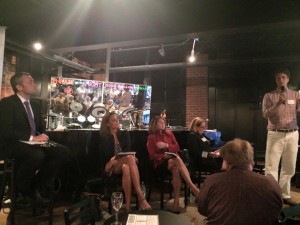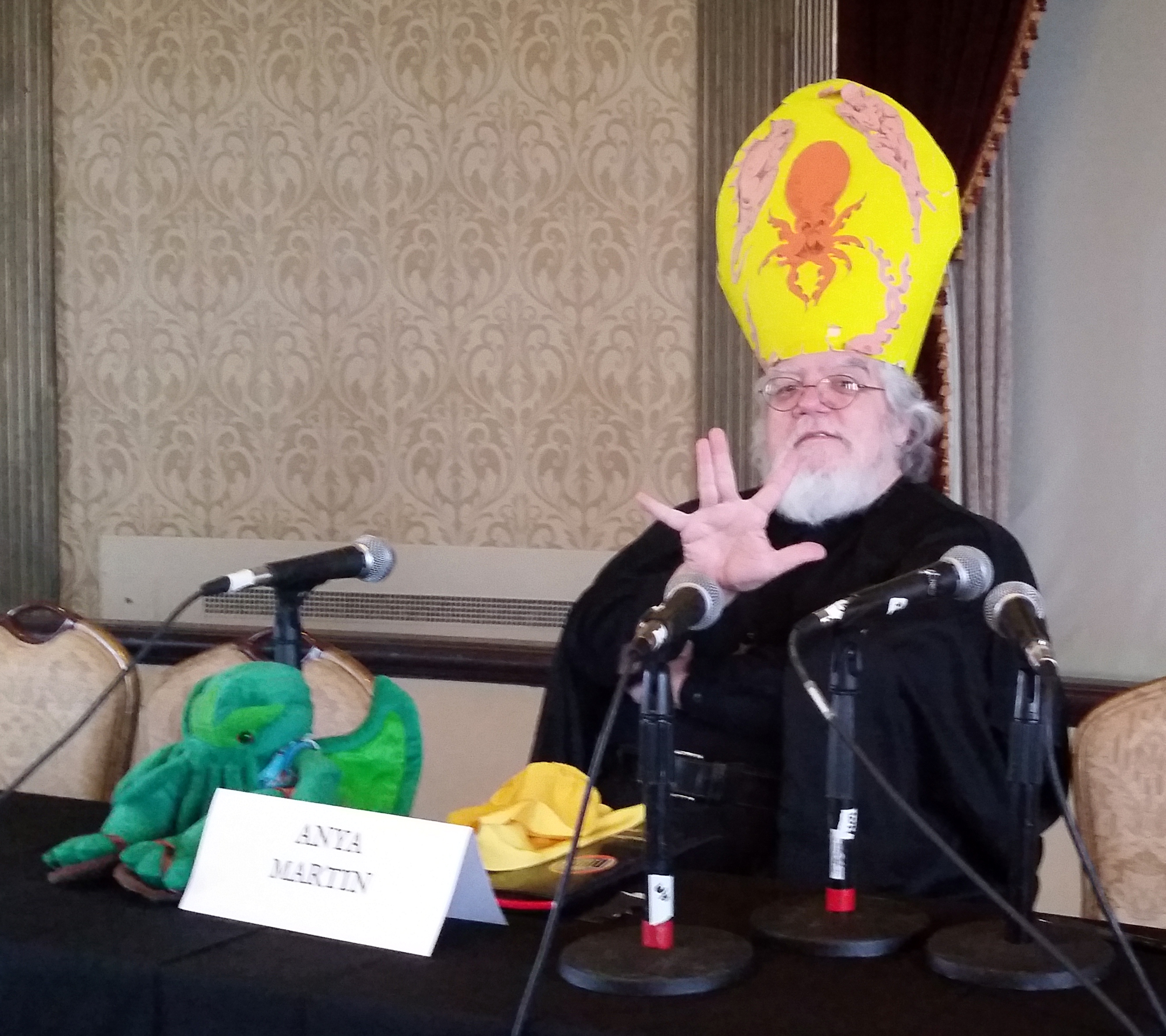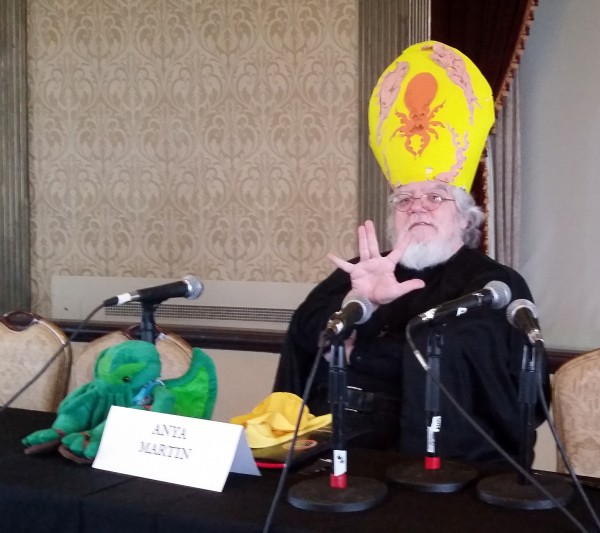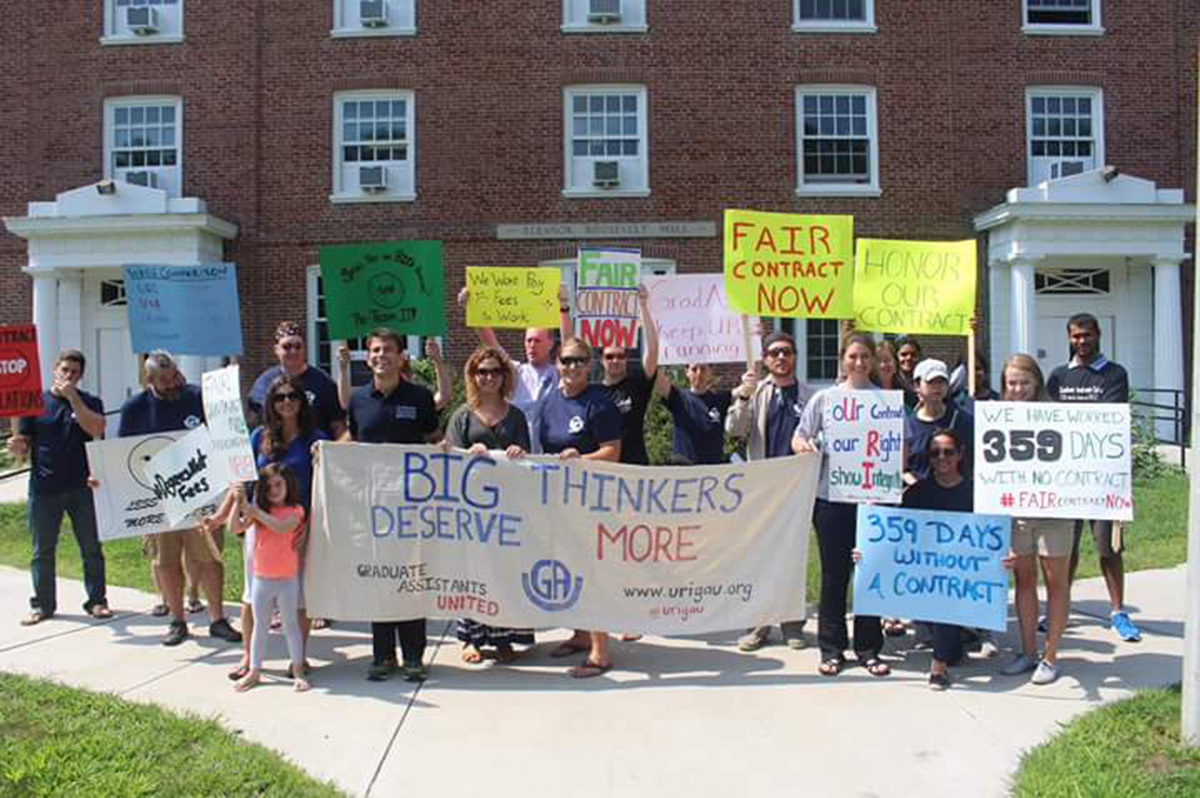
What do we want? Free parking!
What?
Greater City Providence deserves journalistic credit for picking up on a story about graduate student organizing at URI and connecting the dots about how those demands impact environmental planning goals. I wanted to make a specific repost here, as well as add a few thoughts of my own, because I don’t find that the labor world and the environmental world always talk to each other very effectively in Rhode Island (or anywhere, maybe). People who read RI Future, like myself, care about labor organizing and what it portends for a more equal future for all of us at the workplace, but may also be concerned about exactly the points that GCPVD brought to light.
The story: The URI grad students reportedly have asked for a continuation of free parking at URI’s downtown Kingston campus. In an earlier version of this article, I had given information about downtown and Kingston, but in this sentence I accidentally glossed over and left only the word “downtown” during last minute corrections. The union has been clear that its demands relate only to the Kingston campus. I am keeping downtown information here as well for context because I think it’s relevant to URI’s overall parking policy discussion. Apologies for the error! The free parking is of course not really free at all, but costs taxpayers money to subsidize the garages where people park, and policies that subsidize parking warp commute choices towards driving. In addition, URI stands out for having very incomplete and inconvenient transit pass policies. The result is a very easy and cheap drive commute competing with a more cumbersome and expensive transit one, right across the street from Kennedy Plaza. Students at URI Main Campus in Kingston have access to the 66 and 64 buses and an excellent bike path through South County, and could in short order have MBTA service as well. Grad students naturally see the attempts from university officials to charge them for parking as an attack on their already meagre livelihoods, but it’s an ominous sign for the future of Rhode Island if free parking policies continue in such obvious transit-oriented locales.
Where I would add to what Jef Nickerson of GCPVD has said is that I actually think this is a relatively easy issue to resolve, and doesn’t at all have to pit us either against the environment or against unions. The solution here is to charge full price for parking just as the university has proposed, but also credit grad students with that cost as pay which can be used for whatever they like. That would mean that workers who bike or ride the bus effectively get a raise, while everyone else breaks even. Graduate students are right, in my view, to be pointing out the absurdity of their pay hovering around $15,000 a year. It’s just that the solution to that is better pay, not subsidized driving.
Many states, like California, require a parking cash out for workers in certain types of jobs. In California, it’s structured so that only employers who rent parking are required to give the cash out, because it’s assumed that rented parking spots are a liquid asset that can be dropped or maintained by the employer based on parking demand, and that the savings should be passed as part of people’s wages. In URI’s case, the parking that is rented is paid for by the state to the Dunk Center, and so is definitely that kind of liquid asset. In Kingston, as in downtown Providence, the parking situation is absurd. URI has been gradually tearing up more and more of the agricultural land around it to satisfy the needs of its students and faculty to drive instead of finding ways to resolve that through on-campus housing expansion, transit, or biking. Parking cash outs have a positive effect on commute modeshares–increasing carpooling, biking, walking, and transit-use.
It’s not probably well known, but there was a window of my life when I did a lot of labor organizing, and was even a card-carrying union member. The work that the grad students are doing to improve their working conditions is something I support. But an injury to one is an injury to all not just in labor situations, but also for our world as a whole, and it’s the duty of union members to imagine a new world in the shell of the old, not just to make shallow demands about their own needs. This is a time when the grad student union could show real leadership and modify its demands in order to get what it needs for its workers while also respecting the future of our planet.
I dreamt I saw Joe Hill last night,
Driving an S-U-V.
I said to Joe, “our planet’s dying”,
He said, “it’s up to me.”
He said, “it’s up to me.”
~~~~

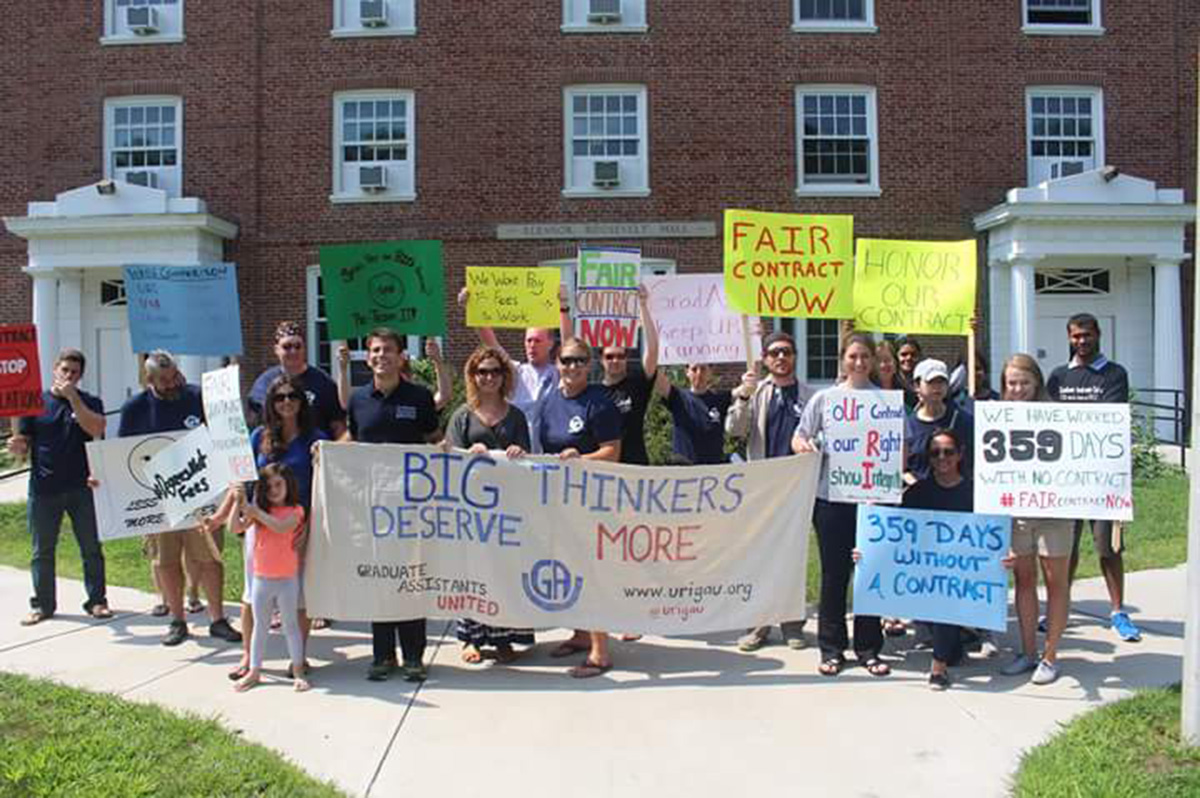
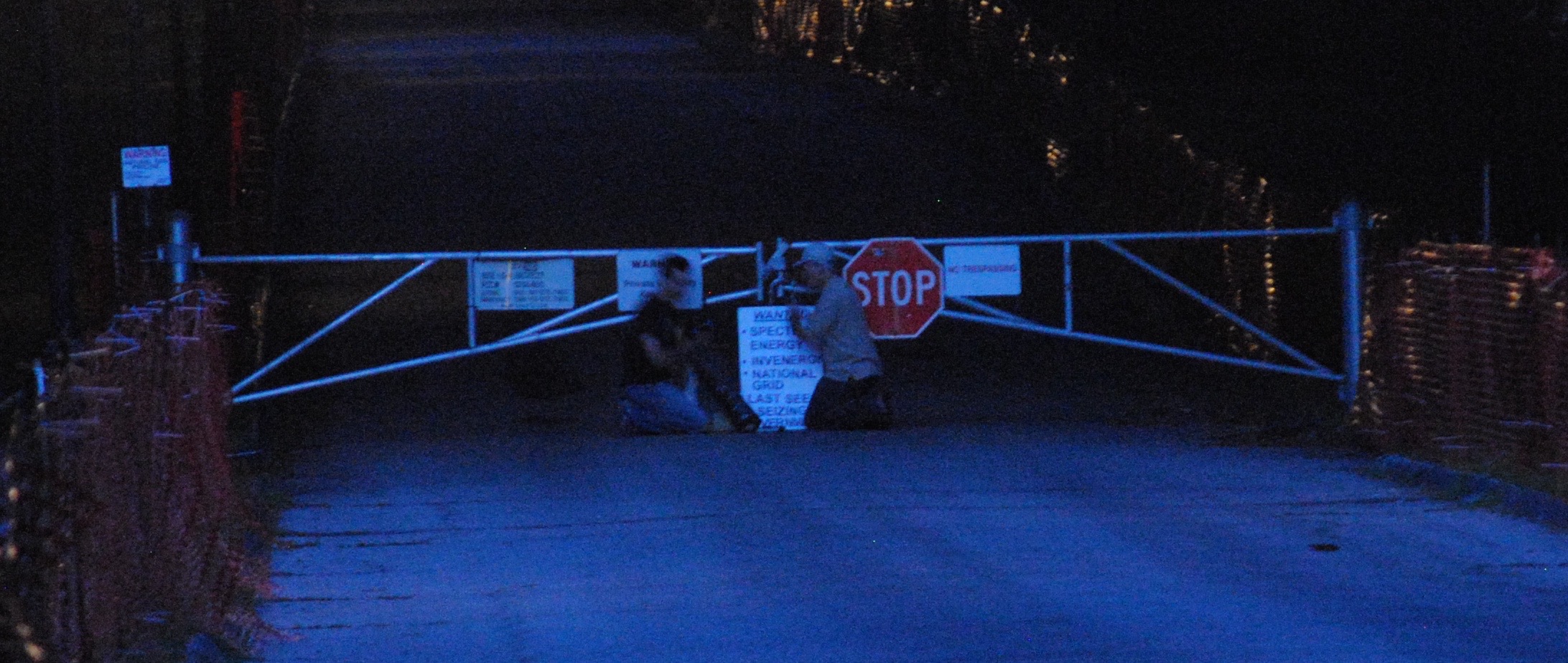
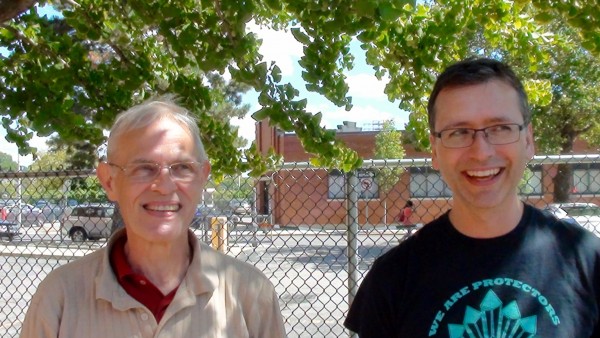
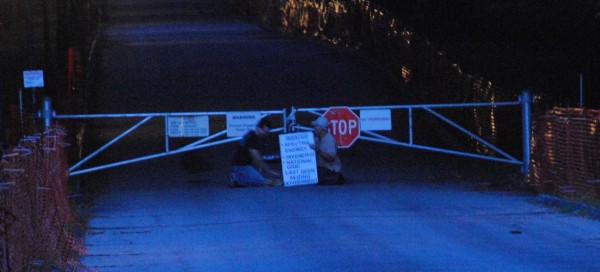 Nordgaard, a resident pediatrician at Boston Medical Center, stated after his arrest that “if we had legal means to stop this project, we would use them. Instead we are forced to protect families and communities through nonviolent civil disobedience, in proportion to the severity of this threat.” Nightingale, a professor of physics at University of Rhode Island and a member of Fossil Free Rhode Island and who was
Nordgaard, a resident pediatrician at Boston Medical Center, stated after his arrest that “if we had legal means to stop this project, we would use them. Instead we are forced to protect families and communities through nonviolent civil disobedience, in proportion to the severity of this threat.” Nightingale, a professor of physics at University of Rhode Island and a member of Fossil Free Rhode Island and who was 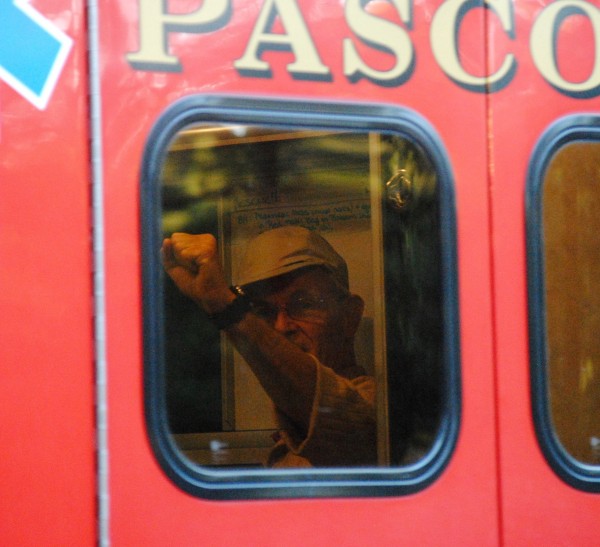 Nightingale stated: “Under the Public Trust Doctrine, government has a duty to preserve Earth’s gifts for present and future generations. The fact that we cannot use this argument to justify our actions in Burrillville [in Rhode Island’s courts] is but one symptom of the environmental injustice that pervades our system of government.”
Nightingale stated: “Under the Public Trust Doctrine, government has a duty to preserve Earth’s gifts for present and future generations. The fact that we cannot use this argument to justify our actions in Burrillville [in Rhode Island’s courts] is but one symptom of the environmental injustice that pervades our system of government.”

